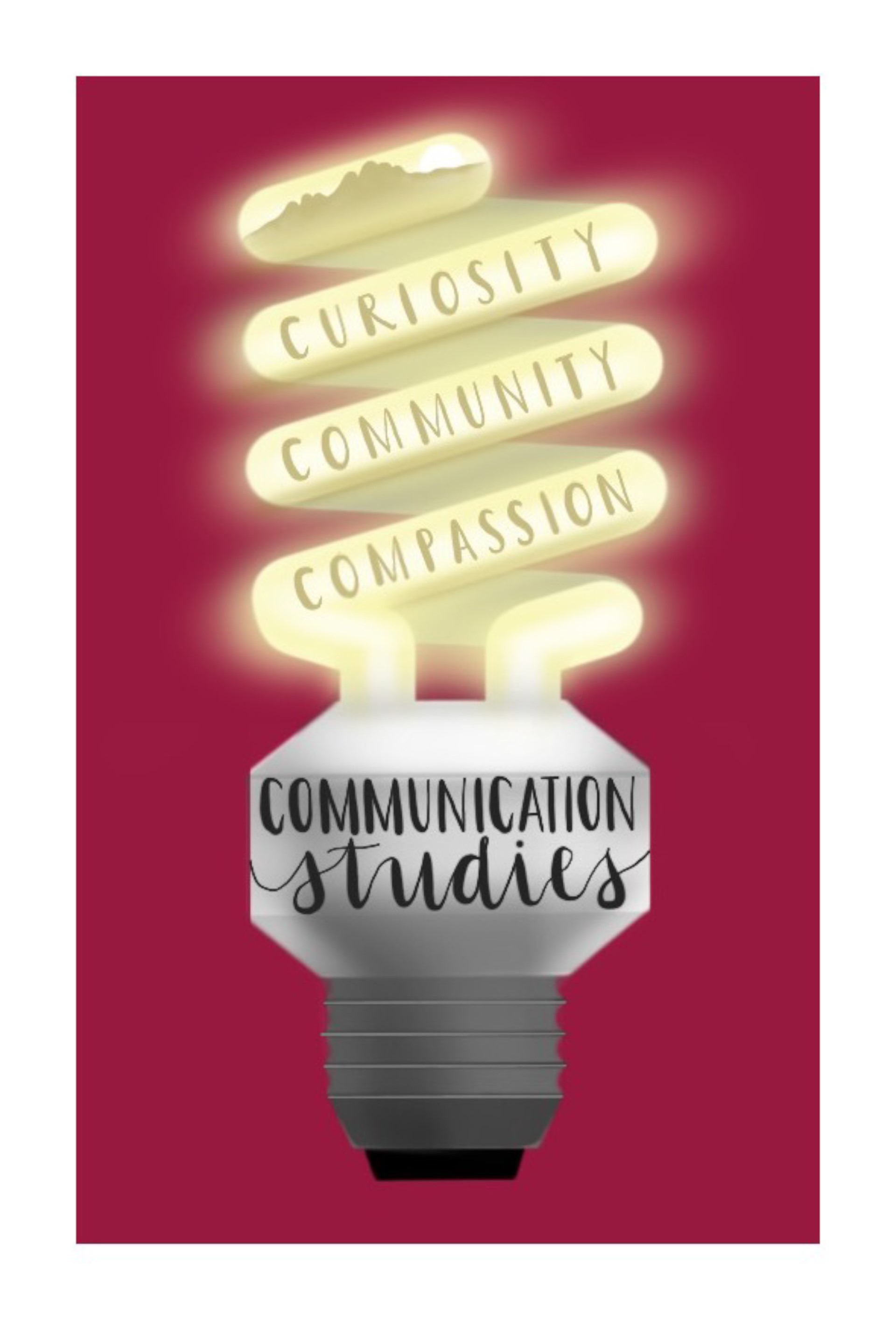|
|
The Communication Studies Department provides students with a social science approach to the study of human interaction. The curriculum is designed to explore and explain how communication takes place within the three primary domains of interpersonal, organizational, and intercultural communication. Communication studies research and learning are conducted in topic areas such as conflict management, small group communication, persuasion, cultural communication issues, media studies, global communication processes, political campaigns, psychological aspects of communication, nonverbal communication, and health communication. As a result of the geographic location of the university, faculty, and students in the department are able to conduct research on communication problems involving people of different cultures, ethnic groups, and nations. |
Current Research Topics from our Department include:
- Intersectionality and Communication
- Equity, Inclusion, and Diversity
- Veterinary Communication and Microaggressions
- Feminism in Communication
- Media Message Strategies and the Control of Biological Viruses Found in New Mexico
- Communication Effects of Relationship Development & Dating App Use
- Media Framing & the NFL Draft
- Effect of Covid-19 Pandemic on Family Rituals & Family Gatherings
- Invisible Disabilities & Mental Health Accommodations
- Social Media Use & Covid-19 Vaccine Misinformation
- Messaging in Corporate Social Advocacy
- Intercultural Communication in the American Southwest
- Communication & Intercultural Mental Health Treatment in Families
- And More!
Undergraduate Communication Courses
The following 7 classes are required core classes:
- COMM 1115G: Introduction to Communication (3 credits)
- COMM 3110: Communication Theory and Discovery (3 Credits)
- COMM 3120: Persuasion Theory and Practice (3 credits)
- COMM 3510: Organizational Communication (3 credits)
- COMM 3610: Interpersonal Communication (3 credits)
- COMM 3710: Communication and Culture (3 credits)
- COMM 4998: Communication Internship (3 credits)
Click here for COURSE DESCRIPTIONS.
In addition to completing the above 21 credits, students must complete an additional 15 credits of elective communication studies courses. Elective unit courses can be taken in nonverbal communication, political communication, health communication, communication technologies, environmental communication, international communication, small group communication, sports communication, family communication, deception communication, leadership communication, and various selected topics.
For more information, click on COMMUNICATION STUDIES REQUIREMENTS and ROAD MAP.
Communication Studies Minor
Currently, students can fulfill a minor in Communication Studies by completing 18 credits of Communication Studies classes.
The following classes are required:
- COMM 1115G: Introduction to Communication (3 credits)
- COMM 3510: Organizational Communication (3 credits)
- COMM 3610: Interpersonal Communication (3 credits)
- COMM 3710: Communication and Culture (3 credits)
The additional 6 credits can be comprised of any other Communication Studies classes.
Undergraduate Forms
Interested in becoming a Communication Studies MAP student? The MAP program provides students with an opportunity to take up to 12 graduate credits during their undergraduate that can be apply towards a Masters Degree.
Click here to learn more: MASTER'S ACCELERATED PROGRAM (MAP)
For a concise list of MAP Communication Studies Courses, click here: MAP COMMUNICATION STUDIES COURSES

